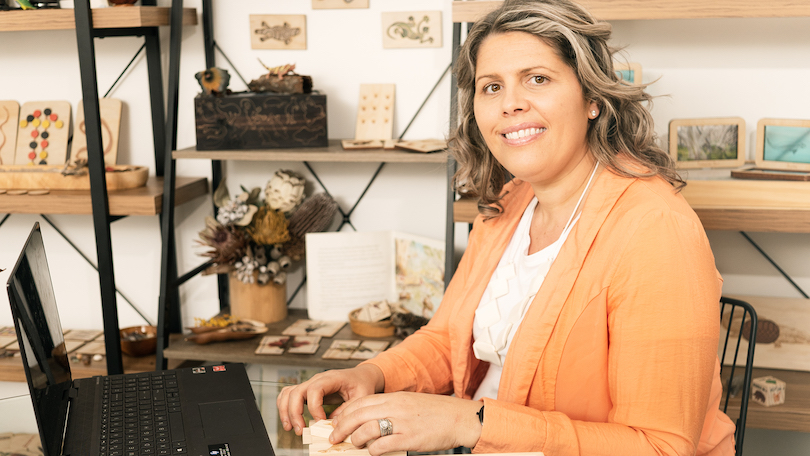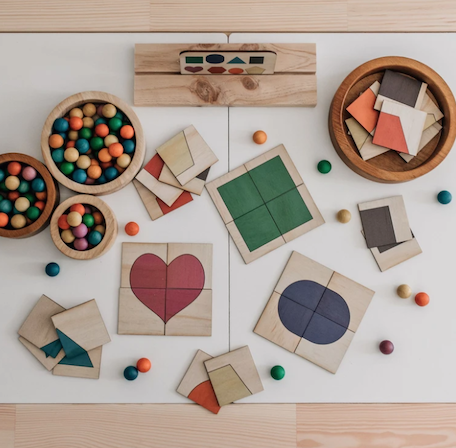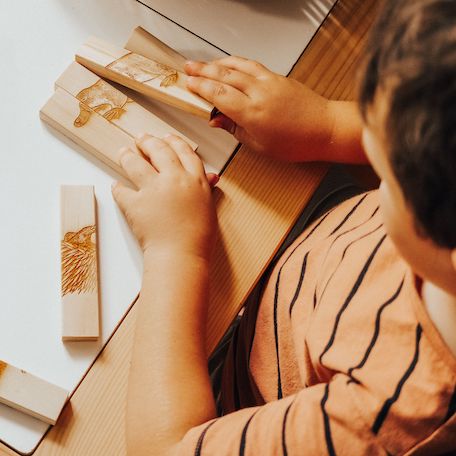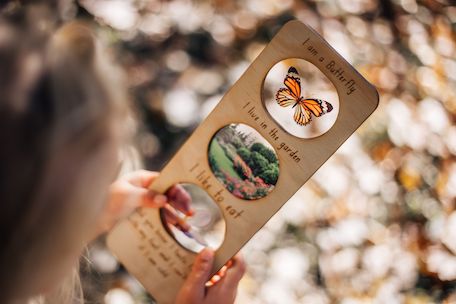Exclusive interview: Leanne Murner of 5 Little Bears

As today’s parents gain a greater awareness on environment-related issues, they are now leaning more toward investing in eco-conscious toys for their children. Online toy retailer 5 Little Bears creates eco-friendly products with educational themes to meet this need, and during the Covid-19 outbreak, it experienced record sales.
Internet Retailing talks to founder Leanne Murner on how she got into this growing market trend…
Internet Retailing: Can you tell us about your business? What gave you the idea to develop eco-friendly products?
Leanne Murner: With timber offcuts piling up from my other business, Personalised Keepsakes, I was looking to find a sustainable use for them. I made a lacing template for my local preschool to teach kids to tie their shoes and was then approached by a preschool educator about making puzzles and sensory items. After extensive research, I found that there was an obvious void in the market for Australian-themed educational resources. With focusing on teaching Australian kids about their own backyard, 5 Little Bears was born. All of my products are skillfully handmade in NSW and are proudly licenced Australian Made. I am the sole director and the designer/maker of all the products.

Personalised Keepsakes, my nine-year-old business which makes custom timber boxes and photography packaging, is pretty much closed due to the Covid-19 crisis and no wedding photographers working. I am putting my focus on 5 Little Bears 100 per cent right now.
5 Little Bears is mainly based online with most sales coming from our website. We are fortunate enough to keep our shop front open and keep trading in the height of the pandemic.
IR: How eco-friendly are your products?
LM: All of our products are handmade from sustainably sourced timber with some of our product line containing a perspex inlay. All waste is minimalised and used as a compost fill or garden mulch. The products’ ratio includes 95-per-cent timber and 5-per-cent perspex. We also believe reducing our carbon footprint is particularly important and we have achieved this by recycling our printer cartridges, collecting our sawdust and using in compost and minimising our offcut waste to an extreme minimum. Any small offcuts we have left goes into our green waste bin. Some of the more usable pieces we sell as a loose pieces for craftspeople to further reduce our carbon footprint. So far, the company has been successful in this endeavour. When designing, we (jigsaw) our products together to help with the manufacturing times, reducing the machine running time to a minimum and collecting all our waste for composting.

Our future plans include purchasing our premises and installing solar panels.
IR: How would you describe the first seven months of 2020 at 5 Little Bears?
LM: The first seven months of the year have exceeded our expectations with record sales and so much positive feedback that we now mostly wholesale to gift stores and online. Our products are so popular with customers purchasing to help with their home schooling as well as wholesaling to gift stores/online stores around the world who are struggling to find stock.
IR: Have you gathered any interesting insights about the business during this period of time?
LM: I have noticed how much Australia lacks good-quality Australian-made and Australian-themed puzzles and sensory products.
IR: Can you tell us about your online sales this year? How do they compare to last year or the previous years?
LM: Our sales have increased by nearly 400 per cent since the start of the year. 5 Little Bears only launched in October 2018 so this growth has rapidly increased this year. With our intense growth, we have had to ramp up production, purchase new equipment and employ more staff.
We are in the process of working on an Australian-themed endangered-species range due to the bushfire destruction as the endangered list has increased significantly in both plants and wildlife.

IR: How does your company dispose of unsold toys?
LM: We don’t have any unsold toys as we are pretty much making and selling. We do have some with slight imperfections/seconds that we donate to local preschools, and to day-care centres.
IR: How long do you think sustainable, eco-friendly toys last?
LM: If the correct care is taken sustainable/eco-friendly toys should last a lifetime.
IR: How are you doing the marketing? What do you focus on when you create ad campaigns?
LM: We post daily on our social-media platforms and stories. We have a few Instagram accounts we collaborate with, branching out our products to their audience. We are also running Facebook advertising campaigns targeting gift stores, toy stores, childcare centres, preschools and parents with children aged 2 to 5. We send out a newsletter to our growing database. Our business has picked up greatly since working hard on our marketing.
IR: Do you think price is an issue with the eco-friendly toy industry? How do you think you can overcome that?
LM: Anything that is sustainable/eco-friendly is always going to cost more but you can’t put a price on quality. We can overcome this by being smarter with our template design allowing us to use every piece of timber. By this we can make more affordable pieces by using materials that would have been wasted.
IR: What does the company have planned post-Covid 19?
LM: We plan to export more of our products for wholesale and launch the first of our range of children’s books teaching kids about Australian flora and fauna.
Comment Manually
You must be logged in to post a comment.

No comments